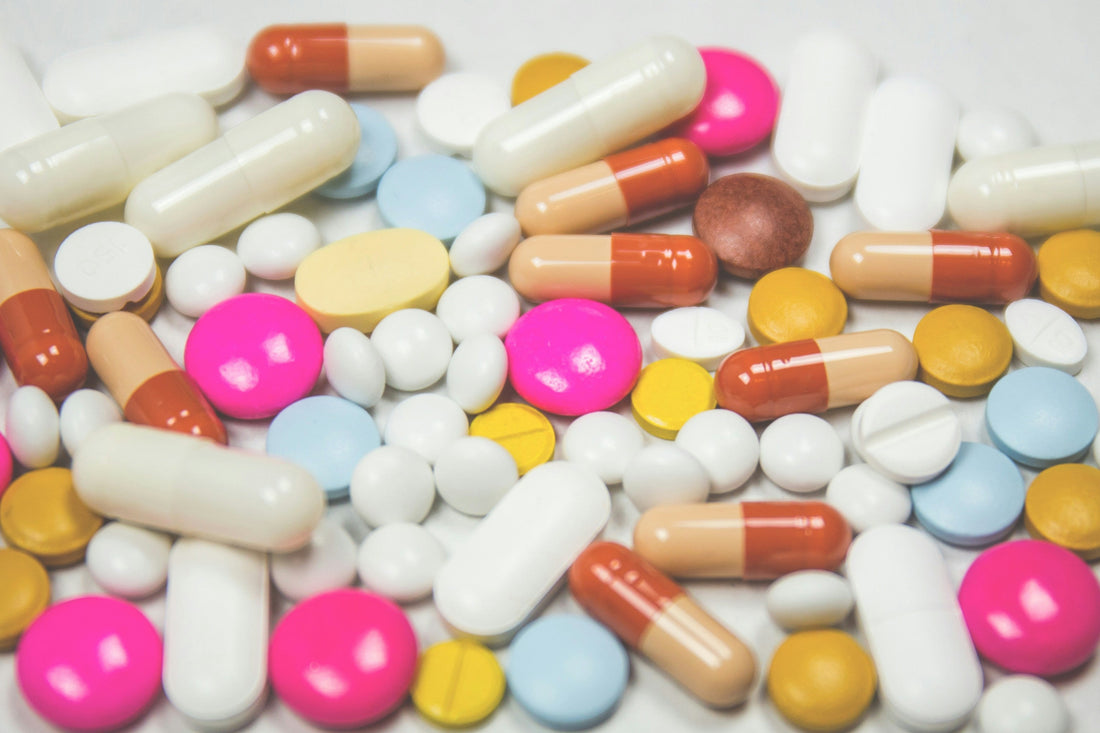
My Journey with Acne: Navigating Accutane and Spironolactone, and Eventually Finding a Balance
Share
Author(s): Maha Khan
Growing up, I was one of the lucky high schoolers who didn’t have to worry much about acne—just the occasional pimple on my chin. It wasn’t until I was in college, around 18 years old, that the breakouts started, and what I thought was just a passing phase turned into a decade-long struggle, one that continues even today.
For the next five years, I found myself bouncing from one dermatologist to another, desperately searching for a solution. Each doctor had a different answer, but the results were always the same—another round of antibiotics, another failed attempt. I’ll never forget the time a dermatologist in New York looked at a prescription from a previous doctor and bluntly said, “This antibiotic isn’t even for skin.” I wanted to peel over and cry right there on the doctor's table.
The opinionated aunties were worse than any doctor though. "You must touch your face a lot." "Oh no! You used to be such a pretty child!" "Do you wash your pillowcases regularly?" It felt like a kick in the gut every time.
After years of frustration, I eventually turned to Accutane, the so-called big gun in the fight against severe acne. Those five months on Accutane were tough. My skin was so dry that applying makeup became a nightmare. I constantly looked like I had just eaten a greasy piece of fried chicken because I had to slather thick, shiny lip balm around my lips to prevent them from cracking and bleeding. Then there was the dreaded iPledge program, where I had to vow not to get pregnant during treatment, along with the monthly blood tests to make sure I wasn’t pregnant—and to monitor my liver and kidney function because, well, Accutane. And how can I forget the graphic warnings on the packaging, reminding users of the severe birth defects that could result if you did get pregnant while on Accutane? But despite all the challenges, by the end of the treatment, my skin was finally clear for the first time in years. When I went to pick up my last prescription the pharmacist said "You don't look like you need Accutane!" I couldn't have smiled bigger if I tried.
A blissful year and a half passed, until my acne returned. My dermatologist had said the chances of the acne coming back were less than 20%. Disheartened, I went through another five months of Accutane, hoping this time would be the last. The acne subsided again and this time the dermatologist informed me there was less than 5% chance of the acne returning. Feeling hopeful, I decided to invest in laser treatment for the acne scarring that had resulted from years of breakouts. I'll never forget the 8am appointments and showing up to work with bright red marks from the laser that took days to go away.
But once again, my acne returned after about a year and a half and all the money spent on the scar treatment went down the drain. I was crushed.
This period also coincided with the early stages of launching my skincare startup, which meant I was trying every new product on the market. My skin was overwhelmed, and my health began to feel the strain.
During my MBA, I had some hormone tests done that revealed an imbalance, but I was too caught up in the whirlwind of school and business to follow up on any kind of treatment.
Fed up with Accutane, I began some self-research and realized something crucial: Accutane is not designed to address hormonal acne, which is why it may not provide a permanent solution for those whose acne is hormonally driven (which I assumed mine was based on the imbalance that the hormone tests showed). It was a tough pill to swallow, but it made sense. I started to wonder if my experience would have been different if I had consulted a female dermatologist, someone who might have considered hormonal factors sooner.
That's when I joined an online dermatology platform (I was matched with a female dermatologist) that recommended Spironolactone, a medication that is more commonly used for hormonal acne. The results were slower compared to Accutane, but over time, I noticed a significant improvement.
Unfortunately, the story doesn't end there. About two years one and a half year into taking Spironolactone, I started feeling very off. My PMS symptoms worsened, my mood swings became more intense, I had trouble sleeping, and I felt lethargic. Worst of all, my acne would significantly flare up before my period despite being on Spironolactone.
It wasn’t until a trip back home to Lahore, Pakistan, that things started to make sense. My mother, Saman, who is also my co-founder, insisted I see a doctor. I got my hormones tested again, and this time, I found out my progesterone levels were low. After getting a second opinion, I learned that low progesterone can be a side effect of Spironolactone. The medication was originally developed to lower blood pressure which could be the reason for my lethargy and low progesterone levels are often tied to worse PMS symptoms, mood swings, and other physical and mental effects I was experiencing.
This discovery was unsettling, especially since a lot of information around low progesterone levels revolves around fertility issues. I decided to stop taking Spironolactone immediately. In hindsight, I wish I had focused on finding the root cause of my acne sooner and eliminated all the unnecessary products from my skincare routine, rather than focusing on the quickest way to get rid of the breakouts. Now, I’m much more mindful of what I put on my skin, I have a very minimal, natural-based routine, and I'm far more thoughtful of what I put into my body, I try to avoid sodas, I've cut down on sugar, and I'm trying to eat more foods that support my progesterone levels. I feel physically better and my skin is stable so far (stay tuned...).
Looking back, I’ve learned that the journey to healthy skin is deeply personal and often involves a lot of trial and error. While I wish I had discovered the hormonal connection earlier, I’m grateful for where this journey has led me—toward a more holistic approach to skincare and well-being.
I want to emphasize that this isn’t meant to scare anyone off these medications. If I were to do it all over again, I’d probably still take them, as crazy as that sounds. I understand the pain of not wanting to leave the house, of being desperate for a quick fix, of feeling like you’re doing everything right but nothing works on your skin. It feels unfair and cruel.
For those of you going through a similar journey, I hope my story makes you feel less alone in your struggle. You will come out of this stronger. Remember, you are more than your skin. Hang in there.
With love and gratitude,
Maha

